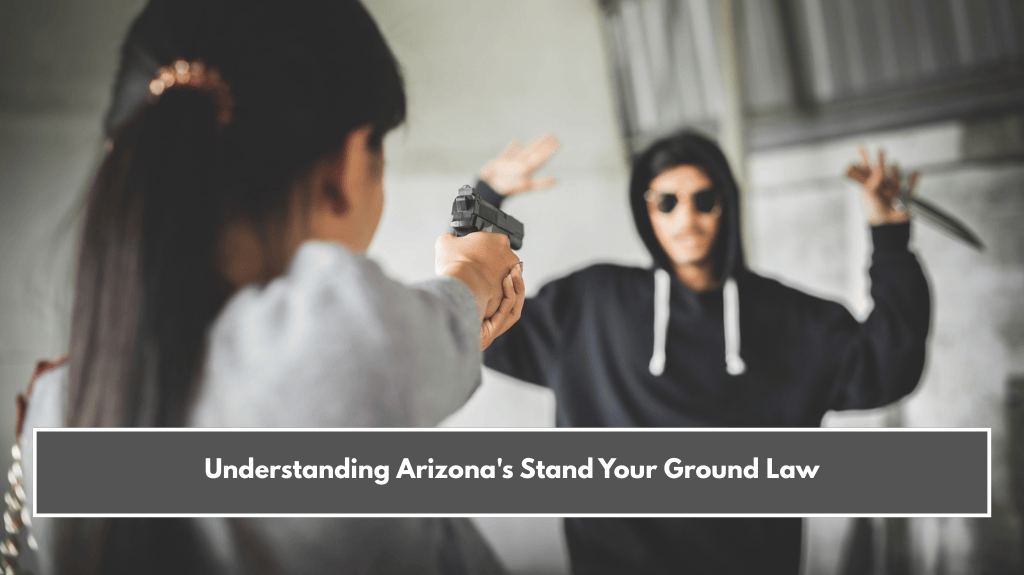Arizona’s Stand Your Ground law is a significant component of the state’s self-defense legal framework, allowing individuals to defend themselves without the obligation to retreat before using force, including deadly force, in certain circumstances. This law is rooted in the principle that a person has the right to protect themselves or others from imminent harm, regardless of their location, provided they are lawfully present and not engaged in unlawful activity.
Legal Foundations and Key Statutes
Arizona’s Stand Your Ground provisions are primarily codified in Arizona Revised Statutes (ARS) 13-404, 13-405, and 13-411. ARS 13-404 outlines the general justification for using physical force to defend oneself or others.
ARS 13-405 specifically addresses the justification for deadly force when faced with an imminent threat of serious physical injury or death. ARS 13-411, often called the “Castle Doctrine,” extends protections to individuals in their homes and other legally protected spaces, emphasizing that there is no duty to retreat in such locations.
Core Principles of Arizona’s Stand Your Ground Law
- No Duty to Retreat: Unlike jurisdictions that require individuals to attempt to escape or avoid confrontation before resorting to force, Arizona law permits the use of force if the person reasonably believes it is necessary to prevent imminent harm. This applies both inside and outside the home, in public places, and any location where the individual has a legal right to be.
- Reasonable Belief and Immediacy: The use of force must be based on a reasonable belief that such force is necessary to prevent immediate and serious harm. The threat must be imminent, meaning it is about to happen or is happening at that moment.
- Proportionality: The force used must be proportionate to the threat faced. Excessive or unnecessary force can undermine a self-defense claim and lead to criminal or civil liability.
- Lawful Presence: The law applies only if the individual is lawfully present at the location. Engaging in unlawful activity at the time of the incident disqualifies the self-defense claim under these statutes.
Application of Force
Arizona’s law permits the use of deadly force in situations where the individual reasonably believes it is necessary to prevent serious physical injury or death. This includes defending against assaults, burglaries, or other violent crimes. Notably, the law explicitly authorizes deadly force to prevent burglary of unoccupied structures, whether residential or commercial.
Limitations and Misconceptions
While Arizona’s Stand Your Ground law provides broad protections, it is not an absolute shield. Limitations include:
- Unlawful Activity: The law does not protect individuals engaged in illegal acts at the time of the incident.
- Excessive Force: Using more force than necessary to defend oneself can result in criminal charges or civil liability.
- Immediacy of Threat: The threat must be immediate; perceived threats without actual or imminent danger do not justify force.
- Proportional Response: The force used must match the level of threat; deadly force is only justified in response to severe threats.
Legal Consequences and Defense
Even when a person claims self-defense under Arizona law, law enforcement and prosecutors will investigate the incident to determine if the use of force was justified. A successful defense hinges on demonstrating that the individual reasonably believed they faced an imminent threat of serious harm and that their response was proportionate and necessary.
If charged, defendants can invoke the law’s protections by presenting evidence such as witness testimony, surveillance footage, or other relevant information showing the immediacy and severity of the threat. An experienced criminal defense attorney is vital to navigate these cases and ensure the individual’s rights are protected.
Public Perception and Impact
Arizona’s Stand Your Ground law aligns with broader national trends that emphasize personal protection rights. However, research indicates that such laws may be associated with increased firearm-related homicides, highlighting the importance of understanding the law’s scope and limitations.
Arizona’s Stand Your Ground law empowers individuals to defend themselves without retreat, provided they are lawfully present, reasonably believe they face imminent harm, and use proportionate force. While offering broad protections, it also requires careful adherence to legal standards to avoid criminal liability.
Understanding these provisions is crucial for anyone facing a self-defense situation in Arizona, and consulting legal professionals is highly recommended to ensure proper application of the law.
Sources:
- https://giffords.org/lawcenter/state-laws/stand-your-ground-in-arizona/
- https://jeffgouldlaw.com/5-arizona-self-defense-laws-should-understand/
- https://guardianlawaz.com/stand-your-ground-laws-az/
- https://en.wikipedia.org/wiki/Stand-your-ground_law
- https://www.navalawaz.com/articles-resources/arizonas-self-defense-laws















